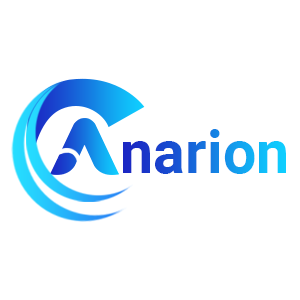Dokku VM by Anarion Technologies
Dokku is a powerful, open-source Platform-as-a-Service (PaaS) solution that allows developers to easily deploy, manage, and scale web applications on their own servers. It provides a Heroku-like experience, making the deployment process seamless and straightforward, especially for those who prefer the control of self-hosted environments without the complexity of full-fledged cloud platforms. By leveraging Docker containers, Dokku isolates each application, ensuring a consistent and secure environment while offering the flexibility to scale as needed.
Dokku simplifies the deployment process using Git, which allows developers to push their code to the server, triggering automated build and deployment steps. This workflow is akin to Heroku, where Git is used as the deployment method, offering a familiar and efficient way to manage updates. Additionally, Dokku supports a wide range of programming languages and frameworks, such as Node.js, Python, Ruby, and Go, through the use of Heroku buildpacks, ensuring compatibility with most modern web applications.
Beyond just application deployment, Dokku allows easy management of databases, environment variables, and other app resources. It supports integration with popular databases like PostgreSQL, MySQL, and MongoDB, allowing developers to quickly set up and manage databases within their applications. Dokku also provides a straightforward way to handle environment variables, custom domains, and SSL certificates, making it an all-in-one solution for web app hosting.
One of Dokku’s key strengths is its plugin ecosystem, which extends its core functionality. Plugins are available for a variety of use cases, including SSL certificate management, backups, monitoring, logging, and more. This extensibility allows Dokku to grow with the needs of the developer, adding advanced features as required without overwhelming the core functionality.
To subscribe to this product from Azure Marketplace and initiate an instance using the Azure compute service, follow these steps:
1. Navigate to Azure Marketplace and subscribe to the desired product.
2. Search for “virtual machines” and select “Virtual machines” under Services.
3. Click on “Add” in the Virtual machines page, which will lead you to the Create a virtual machine page.
4. In the Basics tab:
- Ensure the correct subscription is chosen under Project details.
- Opt for creating a new resource group by selecting “Create new resource group” and name it as “myResourceGroup.”
5. Under Instance details:
- Enter “myVM” as the Virtual machine name.
- Choose “East US” as the Region.
- Select “Ubuntu 18.04 LTS” as the Image.
- Leave other settings as default.
6. For Administrator account:
- Pick “SSH public key.”
- Provide your user name and paste your public key, ensuring no leading or trailing white spaces.
7. Under Inbound port rules > Public inbound ports:
- Choose “Allow selected ports.”
- Select “SSH (22)” and “HTTP (80)” from the drop-down.
8. Keep the remaining settings at their defaults and click on “Review + create” at the bottom of the page.
9. The “Create a virtual machine” page will display the details of the VM you’re about to create. Once ready, click on “Create.”
10. The deployment process will take a few minutes. Once it’s finished, proceed to the next section.
To connect to the virtual machine:
1. Access the overview page of your VM and click on “Connect.”
2. On the “Connect to virtual machine” page:
- Keep the default options for connecting via IP address over port 22.
- A connection command for logging in will be displayed. Click the button to copy the command. Here’s an example of what the SSH connection command looks like:
“`
ssh [email protected]
“`
3. Using the same bash shell that you used to generate your SSH key pair, you can either reopen the Cloud Shell by selecting >_ again
or going to https://shell.azure.com/bash.
4. Paste the SSH connection command into the shell to initiate an SSH session.
Usage/Deployment Instructions
Anarion Technologies – Dokku
Note: Search product on Azure marketplace and click on “Get it now”
Click on Continue
Click on Create
Creating a Virtual Machine, enter or select appropriate values for zone, machine type, resource group and so on as per your choice.
After Process of Create Virtual Machine. You have got an Option Go to Resource Group
Click Go to Resource Group
Copy the Public IP Address
SSH into Terminal and run these following Commands:
$ sudo su
$ sudo apt update
$ sudo useradd -m dokku
$ sudo usermod -aG sudo dokku
$ dokku version
Verify Dokku Services
Use the following command to list all Dokku services:
Deploy a
Test Application
To test Dokku’s functionality
further, you can deploy a simple app like the Node.js example provided in the
Dokku documentation:
Clone a test app:
$ git clone https://github.com/dokku/dokku-quickstart.git
$ cd dokku-quickstart
Create a Dokku app:
$ dokku apps:create myapp
Push the app to your Dokku instance:
$ git remote add dokku dokku@<your-server-ip>:myapp
$ git push dokku master
Once deployed, you can visit http://<your-server-ip>:myapp
to see the running app.
ThankYou!!


